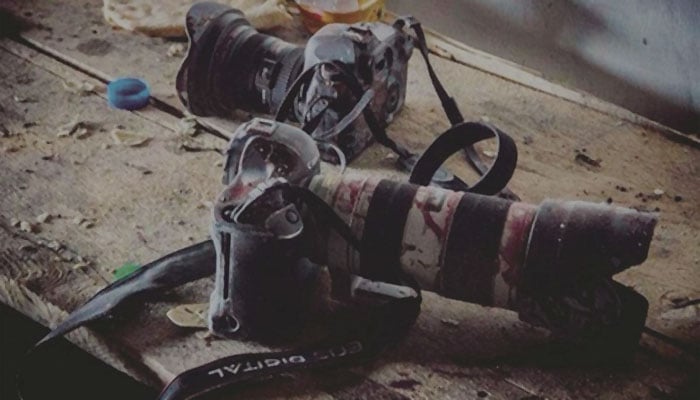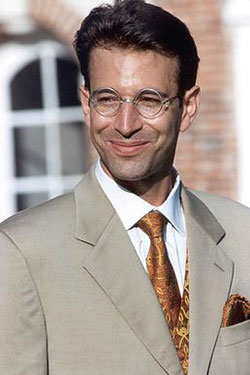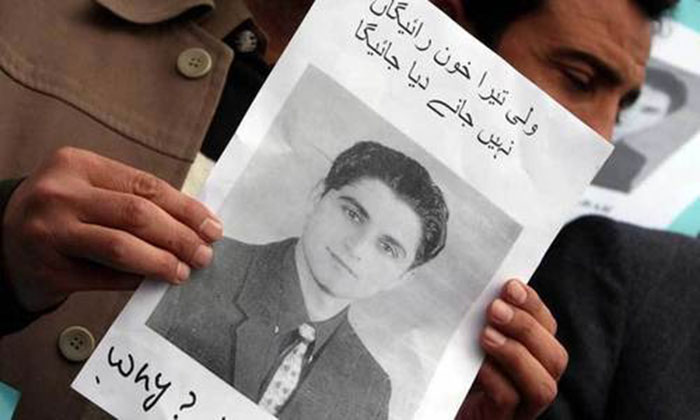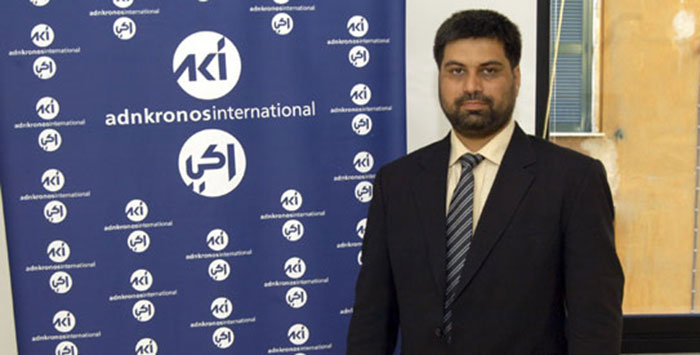Day of Impunity: A case study
In Pakistan, journalists and their families have paid a heavy price in search of justice
November 02, 2017

The International Day to End Impunity for Crimes Against Journalists reminds the world of the failure of governments and states in bringing to justice those involved in the murders or attacks on journalists. In Pakistan, journalists and their families have paid a heavy price in the search of justice.
There are several stories; one widow was killed when she tried to pursue the case of her spouse, while another had to settle for a compromise after she lost hope from the courts.
Hayatullah's family is still in search of justice, not only for his murder but also that of his wife, while Munir Sangi's widow, who once attempted to burn her case file outside the Supreme Court in Karachi, was left with no option but to succumb to pressure.
There is also the story of the journalist who was killed, and the suspects arrested and convicted. Yet, the case is not over and, for the past 15 years, an appeal has been pending in the Sindh High Court. On Wednesday, it was adjourned yet again for an indefinite period.
Wall Street Journal reporter Daniel Pearl was abducted from Karachi on January 23rd, 2002 and his headless body was found weeks later. Due to immense pressure from the United States and WSJ, the government arrested four suspects including the prime suspect, Ahmad Saeed Sheikh, also known as Sheikh Omar.

Pearl was a high profile journalist and thus his case received massive international coverage, credit going to the WSJ which followed the case until the arrest of the suspects.
Later, WSJ also lost interest in the case as well as the story on which Pearl was working.
But what about the cases of many Pakistani journalists, including those of Wali Khan Babar, Munir Sangi, Saleem Shahazad and Hayatullah Khan?
The case of Geo News reporter Wali Babar goes into history as perhaps the only one in which nine people related to the case were killed, the situation becoming so alarming that the state shifted the trial outside Karachi.
The case study of Daniel Pearl shows how the state gets active under pressure and arrests suspects within weeks. Although some books have been written on Pearl's murder but, as a journalist who followed the case from the day of his kidnapping to the day of the verdict, I could say many aspects of the case were not covered.
Similarly, a novel can be written on Babar's case, because never have I heard of killings of so many people linked to one single case.

As a bureau chief of Agence France-Presse (AFP) for six years, covering Pearl's story was quite an experience for me, especially when AFP took the lead in 'breaking' the story of the verdict. For a reporter covering the murder of a fellow journalist and seeing the trial and punishment, it was never an easy job as you also have to maintain neutrality in covering a story.
I filed numerous reports on this one incident as it remained the world's top story until the conviction. But the story on which Pearl himself was working on was never followed up by the organisation. This is something we often come across; that the story dies with the journalist and is never taken up again.
The story which Pearl was working on related to the presence of a militant by the name of Syed Mubarak Ali Shah Gillani. After what happened with Pearl, the WSJ never followed up on the story.
The most painful aspect of the story was when we came to know about his murder and the way he was killed in a compound near Sohrab Goth. The most horrifying aspect was the video of the slaying, which was shot and released to send a strong message.
On the Day to End Impunity for Crimes Against Journalists, where over a hundred cases of attacks on and murders of journalists have gone unheard, this case saw prompt action, with the arrests and initial trial taking place within six months – January to June, 2002 – but the appeal by the convicts has been left pending, from July, 2002 to this day.
The tragedy was the lack of 'follow up' not only on the cases but also on stories for which the journalists gave their lives. I have always firmly believed that the story must not die with the murder of the storyteller.
Although it was claimed that the main accused in the cases were arrested and convicted, the case study shows that some of the suspects directly involved in the killing were never booked in the case. There are at least three of these suspects, who were even kept under detention for almost three years but never formally charged.
I once asked the late Raja Qureshi, the main public prosecutor in the Daniel Pearl case, why these suspects were not charged. "When they were picked up by the police and intelligence agencies, the trial of Omar had started and their inclusion at that time could have further delayed the trial," he said, adding that he was against their inclusion.
Qureshi confirmed that Fazal Karim, Naim Bokhari, and Saud Memon were directly involved.
The main accused in the case, Ahmad Saeed Sheikh also known as Sheikh Umer, who was sentenced to death, and three others who are facing life imprisonment, filed an appeal against their conviction in July, 2002. On the other hand, the State filed appeal for enhancement of sentence from life imprisonment to death.

Going through the case file and talking to some of the counsel involved, it was revealed that perhaps both sides showed little interest in the case, either under some kind of 'arrangement' or instruction from their respective clients not to pursue the case. Many hearings were adjourned without proceedings.
Qureshi once told me that this case ultimately lead to nowhere. 15 years is quite a long period for an appeal, and even if High Court concludes the hearing, it will go to the Supreme Court for final verdict.
When Pearl's suspects were arrested within weeks following his abduction and murder, it created history in Pakistan. In the past 70 years, hardly any suspect in involved in the murder of a journalist has been arrested, and even if they are held in one or two cases, it has always taken months to do so.
Daniel Pearl's case was also the first related to a journalist involving 'cyber crime'. It was later revealed that the suspects used a 'cyber cafe', and one of them was even arrested near the 'cafe' as well.
While every year, we observe ' The International Day to End Impunity for Crimes Against Journalists' for governments not doing enough in the cases of journalists killed or injured, we ourselves are guilty of not following up on their stories, even the stories of their murder cases. From Hayatullah Khan to Saleem Shahzad and Wali Khan Babar, the stories also died with their brutal murders.
While we still wait for the Judicial Commission report on Hayatullah Khan and Saleem Shahzad's murders to be made public, even the report on the attack on Hamid Mir has also disappeared. So, even in the cases where some progress was made, the stories still remain inconclusive.
—Abbas is a senior columnist and analyst of GEO TV, The News and Jang. He tweets @MazharAbbasGEO











